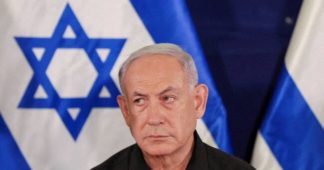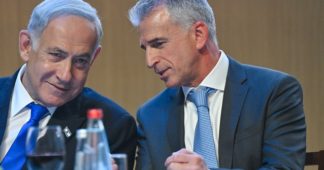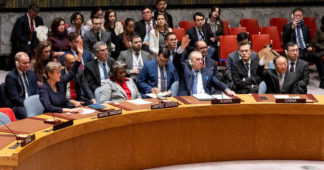Officials say assurances to Qatar, Egypt and US made by security chiefs representing Jerusalem have been abandoned once the prime minister is consulted, gumming up negotiations
7 August 2024
DOHA, Qatar — Israel’s negotiating team suffers from a lack of credibility in the indirect talks with Hamas for a ceasefire and hostage release deal, three officials from mediating countries told The Times of Israel this week.
At multiple points throughout the talks, Israeli negotiators made assurances to Qatari, Egyptian and American mediators regarding elements of the deal that Jerusalem was prepared to accept. But the Israelis subsequently walked back on those commitments after consulting with Prime Minister Benjamin Netanyahu, one of the officials said.
An Israeli negotiating team led by Mossad chief David Barnea, Shin Bet chief Ronen Bar and IDF hostage point-man Nitzan Alon has been involved in months of on-again, off-again talks in Cairo and Doha aimed at reaching a deal to halt fighting in Gaza and free the hundred-plus hostages kidnapped from Israel on October 7 still being held hostage there.
Despite intense domestic and international pressure, and US officials insisting that the sides are on the cusp of an agreement, Israel and Hamas have failed to come to terms, and even reports of progress have been shrouded in a fog of competing claims.
The official said the Israeli team had told mediators for weeks that a deal would be all but certain if Hamas agreed to retreat from its demand for an up-front Israeli commitment to a permanent ceasefire upon the commencement of a staged hostage release deal.
The mediators succeeded in convincing Hamas to retreat from the demand last month, leaving only marginal issues to work out, and the Israeli negotiating team signaled that it would be possible to move forward with an agreement, the official said.
But Netanyahu then issued a series of new demands in late July, undercutting concessions already agreed to by the negotiators, the three officials said.
Netanyahu insists that he has not moved from the ceasefire proposal he authorized on May 27, though the text of the offer obtained by The Times of Israel indicates otherwise.
Netanyahu’s demands include his insistence that Israeli troops remain in the Philadelphi Corridor on the Gaza-Egypt border to prevent smuggling, including at the Rafah Crossing. He is also seeking a new mechanism to be established to prevent armed Palestinians from accessing northern Gaza and for additional vetos on the Palestinian prisoners Hamas is seeking in exchange for the remaining 115 hostages in Gaza, the officials said.
Continue reading at www.timesofisrael.com
We remind our readers that publication of articles on our site does not mean that we agree with what is written. Our policy is to publish anything which we consider of interest, so as to assist our readers in forming their opinions. Sometimes we even publish articles with which we totally disagree, since we believe it is important for our readers to be informed on as wide a spectrum of views as possible.











